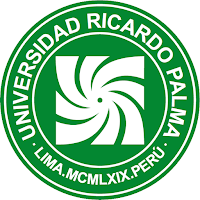Trilce or the forged instrument
Trilce or the forged instrument Trilce or the forged instrument
Article Sidebar
Main Article Content
Gustavo Lespada
Abstract
César Vallejo’s poetics has often been noted for the singular convergence of a radical exploration of language with a forceful social commitment. Likewise, the author is characterized by formal experimentation, and the complexity of his figures alternate with expressions of orality along with popular and historical references. But, in addition, his poetry embodies the heterogeneous conjunction produced by the impact of modernity and the persistence of the original culture; and, in this sense, it is also example of a critical and aesthetic response of a continent to the trauma of conquest. Although in Los heraldos negros (1919) we can already perceive themes and procedures of this search for his own voice, we believe that his lyrical instrument is finally forged, in all its dimension and transcendence, in Trilce (1922).
Article level metrics
Downloads
Metrics
Article Details

This work is licensed under a Creative Commons Attribution 4.0 International License.
La revista utiliza una licencia Creative Commons para mostrar a los lectores y a los usuarios cómo se pueden utilizar los contenidos publicados.
Los contenidos publicados en la revista están bajo una licencia CC-BY 4.0, la cual permite:
- Compartir, copiar y redistribuir el material en cualquier medio o formato.
- Adaptar, remezclar, transformar y construir a partir del material para cualquier propósito, incluso comercialmente.
Bajo los siguientes términos:
- Atribución. Usted debe dar crédito de manera adecuada, brindar un enlace a la licencia, e indicar si se han realizado cambios. Puede hacerlo en cualquier forma razonable, pero no de forma tal que sugiera que usted o su uso tienen el apoyo de la licenciante.
La información de licencia se muestra e incrusta en las páginas de artículos y en ficheros de texto completo como sigue:
«Este obra está bajo una licencia de Creative Commons Reconocimiento 4.0 Internacional».
Adorno, T. W. (2003). Discurso sobre poesía lírica y sociedad. En Notas sobre literatura (pp. 49-67). Akal.
Agamben, G. (2009). Profanaciones. Adriana Hidalgo Editora.
Cornejo, A. (2003). Escribir en el aire. Latinoamericana Editores.
Escobar, A. (1973). Cómo leer a Vallejo. P. L. Villanueva Editor.
Flores, G. y Távara, F. (eds.) (2021). Expediente Vallejo. Proceso penal contra el poeta César Vallejo (3 tomos). Fondo Editorial del Poder Judicial del Perú.
Foffani, E. (2018). Vallejo y el dinero. Formas de la subjetividad en la poesía. Editorial Cátedra Vallejo.
Heidegger, M. (1973). El origen de la obra de arte. En Arte y poesía (pp. 35-123). Fondo de Cultura Económica.
Higgins, J. (1970). Visión del hombre y de la vida en las últimas obras poéticas de César Vallejo. Siglo XXI Editores.
Jitrik, N. (1975). Producción literaria y producción social. Sudamericana.
Lespada, G. (2018). Contra la muerte: Indagación de un motivo en la poesía de César Vallejo. Espergesia, 5(1), 11-23. https://doi.org/10.18050/Rev.Espergesia.v5i1.1807
Lespada, G. (2020). La impronta andina en la poesía de César Vallejo. Zama. Revista del Instituto de Literatura Hispanoamericana, 12(12), 113-122. https://doi.org/10.34096/zama.a12.n12.9619
Vallejo, C. (1973). Regla gramatical. En El arte y la revolución (p. 64). Mosca Azul Editores.
Vallejo, C. (2013). César Vallejo, poesía completa (edición de Ricardo González Vigil). Ediciones Copé.
Most read articles by the same author(s)
- Gustavo Lespada, César Vallejo: Revocation of Death. (Presence of a Motive Until its Origin in The Black Heralds) , Archivo Vallejo: Vol. 2 No. 4 (2019): July - December
- Gustavo Lespada, The heralds of an aesthetic , Archivo Vallejo: Vol. 1 No. 1 (2018): January - June










